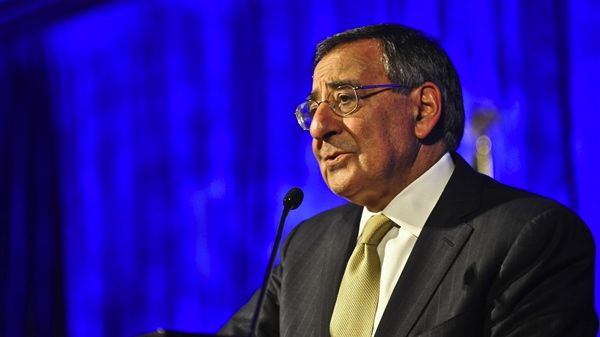US prepares first-strike cyberforces for digital warfare
The dangers of a connected world

Sign up for breaking news, reviews, opinion, top tech deals, and more.
You are now subscribed
Your newsletter sign-up was successful
Cyberattacks are on the rise and the U.S. government is shoring up its defenses against a first-strike digital invasion, said the defense secretary.
A well-executed cyberattack could paralyze the country and cause as much damage to the United States as the Sept. 11 attacks, Leon Panetta warned.
He added that U.S. intelligence found "foreign actors" targeting control and probing American defenses for utilities, industry, and transportation systems.
Panetta delivered his warnings in a speech yesterday to the Business Executives for National Security during the Eisenhower Award Dinner, where he was honored.
"Cyberspace is the new frontier – full of possibilities to help advance security and prosperity in the 21st century," Panetta told the crowd.
"Yet with these possibilities also come new perils. The internet is open and highly accessible – as it should be. But that also presents a new terrain for warfare where adversaries can seek to do harm to our country, our economy and our citizens."
Cybercrime all too common
Small scale cyberattacks are already commonplace now, many large U.S. firms suffer from these attacks everyday. Panetta explained that U.S. financial institutions were recently targeted by Distributed Denial of Service attacks, a strategy that slowing down web servers by bombarding them with data and requests.
Sign up for breaking news, reviews, opinion, top tech deals, and more.
Yet, those type of attacks are nothing new. The secretary warned that more advanced tools for cyberterrorism could have even more disruptive affects on American infrastructures.
Two months ago, the Saudi Arabian state oil company, ARAMCO, was targeted by the "Shamoon" virus that put images of burning U.S. flags on screens and rendered more than 30,000 computers useless.
But that is just the tip of the iceberg of what these cyberterrorists might be able to accomplish.
He said aggressive nations or extremist groups could command crucial controls to derail trains, contaminate water supplies or shut down power grids across the country.
In a worst case scenario, hackers could even gain control of the U.S. missiles and use them against its citizens.
"But the good news is that we are aware of this potential," Panetta reassured the crowd. "Our eyes are wide open to these threats; and we are a nation at the cutting edge of this new technology."
The best defense...
To prevent trouble, the U.S. Department of Defense is putting more effort into preparing for these attacks and working with intelligence agencies to suss out and stop the digital threats before they happen, according to the secretary.
He said the DoD developed better tools for tracking attackers, created a cyber-strike force to operate on computer networks and invests more than $3 billion each year to cybersecurity.
They are also finishing changes to the rules of engagement to confront digital threats quicker.
"Our mission is to defend this nation," Panetta said. "In the past, we have done so through operations on land and at sea, in the skies and in space. In this new century, the United States military must help defend the nation in cyberspace as well."
Via the BBC